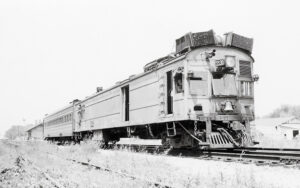
Sixty-odd years ago, I was a youth living in Palmyra, Wis., where my father, Ben Eller Sr., was the station agent for the Milwaukee Road. Palmyra, 42 miles west of Milwaukee, was on the Madison Division, the original line to the state capital via Milton and Janesville. When I was 12, I got braces on my teeth and made bimonthly trips into Milwaukee to the orthodontist. Since Dad was a railroader, I “rode the pass,” and after a few trips I got familiar with the station stops and schedule times of the Janesville–Milwaukee locals.
I also got to know the crews well, and after a few trips I somehow talked conductor “Paddy” Smith into letting me call out the stations between Palmyra and Milwaukee and “throw the stool” (put down the stepbox) at the stops. It could be said that I was the Milwaukee Road’s youngest “trainman.”
One of my proudest days was when my oldest brother, Bill, then a lieutenant in the Air Force, came home on a weekend pass from San Marcos Air Force Base in Texas. He caught a hop to Selfridge AFB near Detroit, then came home by train on the New York Central to Chicago, a Hiawatha to Milwaukee, and the “puddle jumper,” as we liked to call it, to Palmyra.
I also “trained” under the tutelage of conductors “Chick” Knight and Bill Warren, but my career as a “stool-tosser” was short-lived, as a few months into it, the baggageman, “Jiggs,” turned me in to the trainmaster, who told Paddy I would have to stop, lest I make a mistake in calling a station or get hurt throwing the stool.
Paddy, much aggrieved when he had to break the news to me, said he told the trainmaster, “Make a mistake? Hell, the kid knows the stops better than I do!”
Shortly afterward, it became moot, as Dad bid into the Agent-Telegrapher job at Richland Center, in west-central Wisconsin at the end of a branch from Lone Rock, on the Madison–Prairie du Chien line. The good news? Our relocation gave me a whole new set of trains to ride, the four mixed runs on the branch.
I did go on, however, to become perhaps the only person in the U.S. to serve as both a “kid trainman” and a “cow-caller” for the same railroad. A few winters after our move, I was going home to Richland Center from Iowa City, where I was attending what was then known as the State University of Iowa. My routing was strictly “accommodations” — a bus to Dubuque, the Burlington Route up to Prairie du Chien, and Milwaukee train 32 to Lone Rock. No. 32 was the daily-except-Sunday morning local from Marquette, Iowa (across the Mississippi River from Prairie du Chien), to Madison.
Not 20 miles from Lone Rock, just after we left the Blue River station, we suddenly stopped. Despite some clanging of the bell and shrill toots on the locomotive whistle, we remained motionless. Soon a trainman came through and announced there was a cow on the track ahead of the train that seemed to think all the noise was merely a show for her benefit, and was not budging.
Having worked on a local farm a few years before, I knew the measures to be taken in this situation, so I jumped off the train — into a foot-and-a-half-high snowdrift — and struggled over to the nearby highway. Then I began the mournful call, C’boss, c’boss. Now that somebody was talking her language, instead of just making a lot of noise, Bossy decided to follow me up the track, toward her presumed home. Unfortunately, 20 feet before the driveway to the barn, there was an open-deck cattle guard bridge. Nevertheless, with some more friendliness and a little coaxing, I got the balking bovine to go down the bank by the bridge and up into the farmstead.
As the train pulled by, I swung aboard, grateful that I knew how to call cows. Not knowing about “time slips,” I was never compensated by the railroad, or even recognized by the local superintendent, so I had to settle for just the gratitude of the crew.






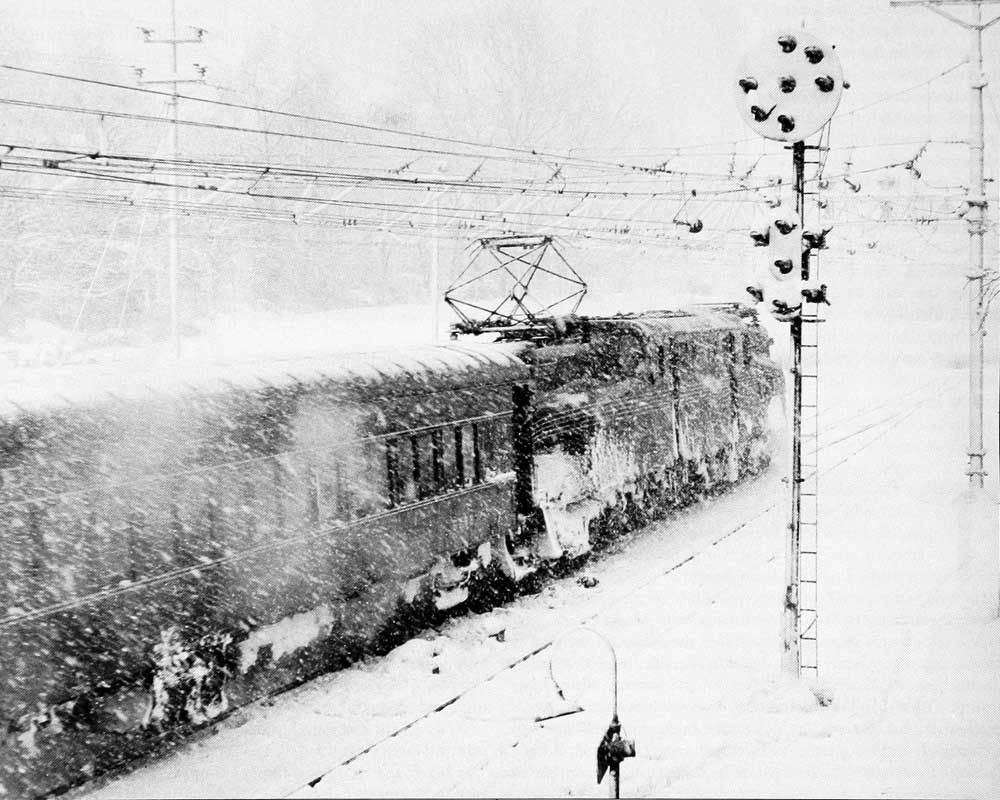
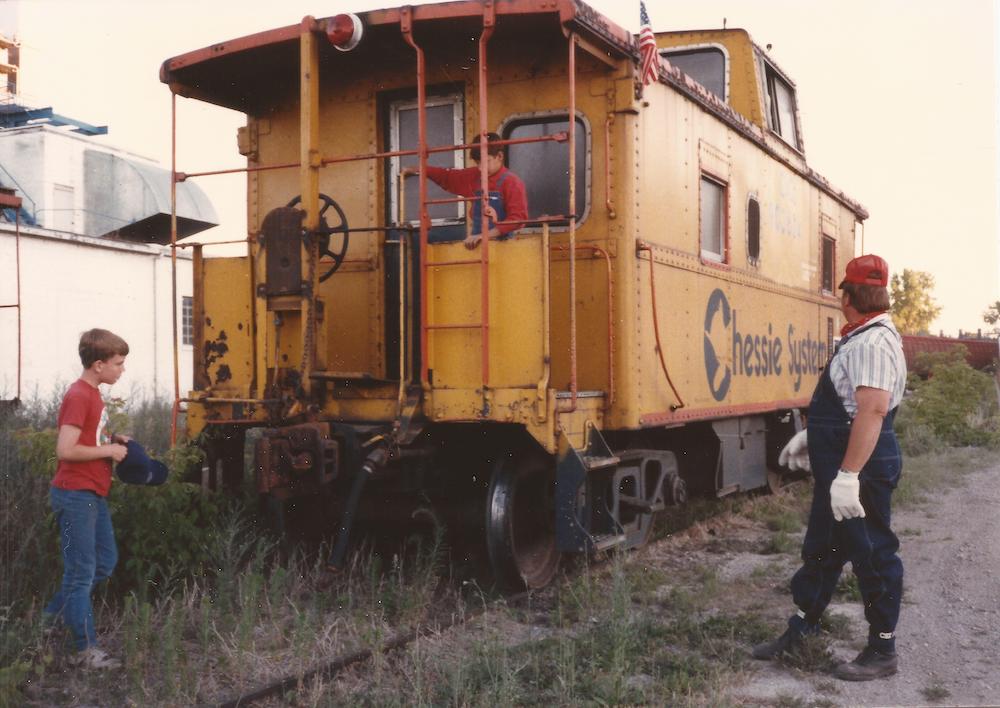
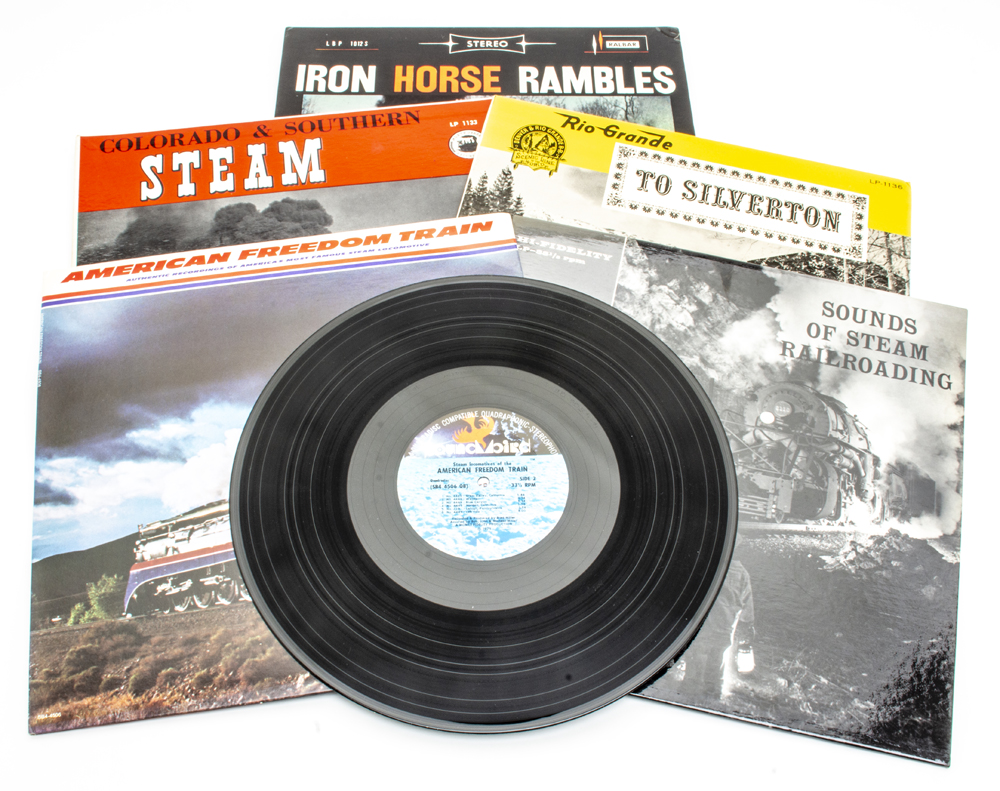
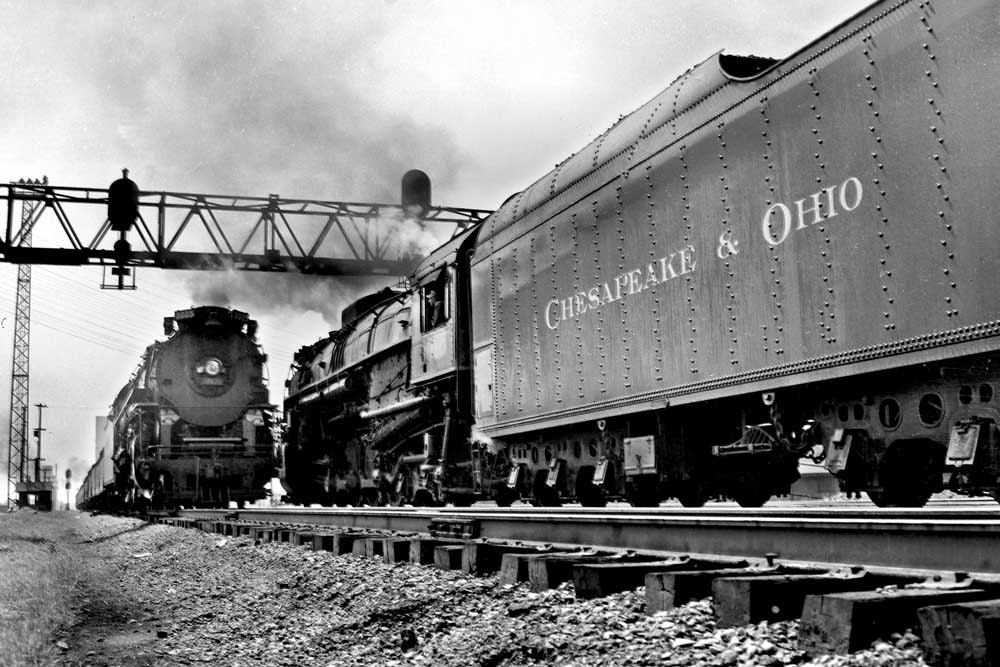



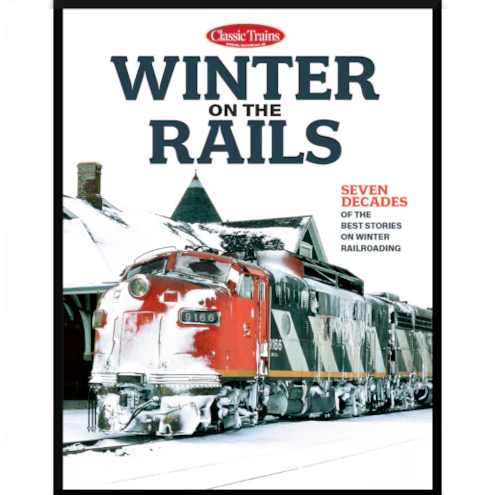
As an aside, that Express/RPO “motor” #5930 was one-of eight (#’s 5925 – 5932) the Road had built c.1923 as a gas-electrics by the Standard Steel Car Co., and rebuilt w/Winton model 120 6 cyl.275 hp diesel engines and Timken roller-bearing power trucks six years later in their own W Milwaukee shops. All were retired by 1954, and the power truck from one (not #5930’s, though) wound-up under the Deer Lodge shop “extension-cord motor” #X3800, which now resides by the Harlowton depot museum.
Ditto!
Great story!